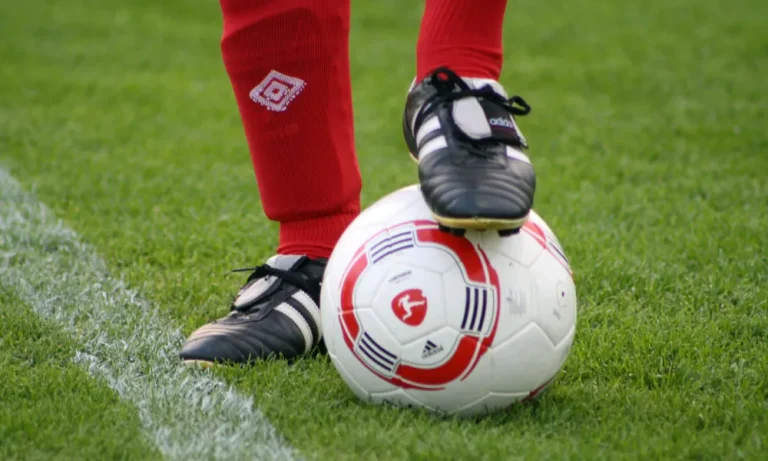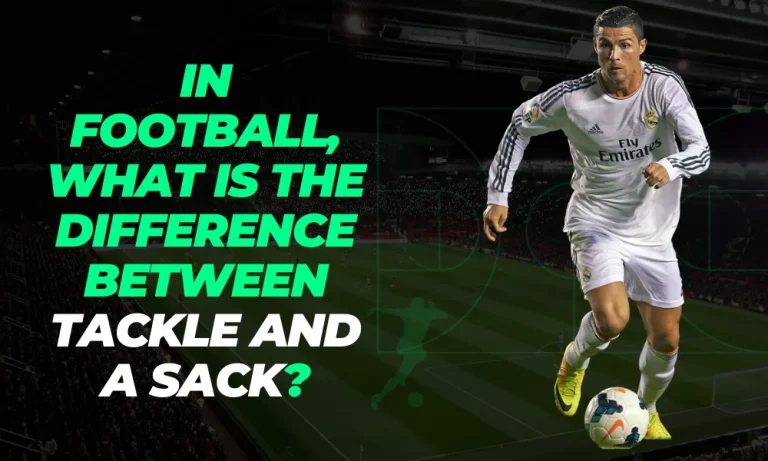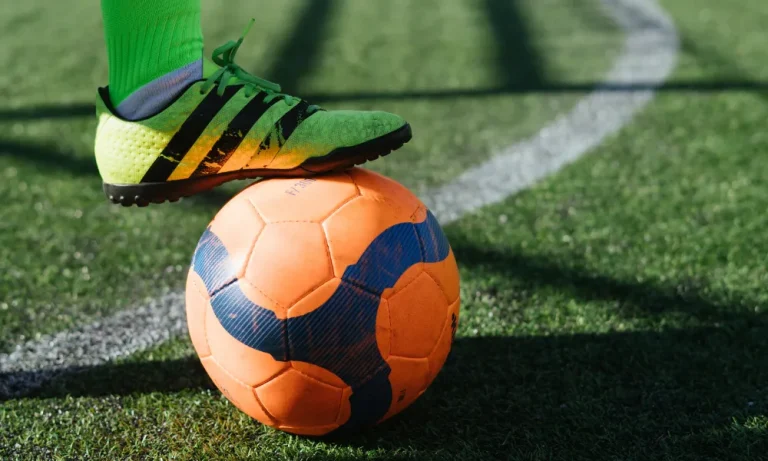What is the Need for the Ineligible Receive Rule in Football?
Have you ever wondered why certain players in football are not allowed to catch passes? Well, my friend, the answer lies in the intriguing concept of the ineligible receiver rule. In this blog post, we will dive deep into the world of football and explore the need for this rule, its impact, and why it plays a vital role in the game.
So, whether you’re a die-hard football fan or just curious about the sport, let’s unravel the mystery behind the question: What is the need for the ineligible receiver rule in football?
Understanding the Basics of Football Positions
Football is an intricate game that involves players in various positions, each with specific roles and responsibilities. To truly grasp the need for the ineligible receiver rule, we must first understand the basics of football positions.
In football, different positions are assigned to players based on their skills and physical attributes. These positions can be broadly categorized into two main types: eligible receivers and ineligible receivers. Eligible receivers are typically wide receivers, tight ends, and running backs, who are allowed to catch forward passes.
On the other hand, ineligible receivers are usually offensive linemen, whose primary role is to block and protect the quarterback rather than catch passes.
The role of eligible receivers in offensive plays is to create opportunities for gaining yardage by catching passes. They are often the primary targets for quarterbacks and play a crucial role in advancing the ball down the field.
In contrast, ineligible receivers, such as offensive linemen, are not allowed to catch forward passes. Their primary responsibility is to provide protection to the quarterback and create running lanes for the ball carrier.
Ineligible Receiver Rule: Purpose and Objective
The ineligible receiver rule in football serves a crucial purpose and carries a significant objective. Let’s delve into the rationale behind this rule and understand why it is essential for ensuring fair competition and maintaining the integrity of the game.
The primary objective of the ineligible receiver rule is to prevent unfair advantages and maintain balance on the field.
By designating certain players as ineligible receivers, the rule ensures that they cannot catch forward passes. This restriction prevents offensive linemen, who typically have a size and strength advantage, from becoming potential pass-catching threats.
Without this rule, teams could exploit the size and physicality of their linemen, creating an unfair advantage over the defense.
Moreover, the ineligible receiver rule contributes to fair competition by maintaining the integrity of the game. It ensures that each player remains within the boundaries of their designated positions and responsibilities.
This prevents deceptive tactics and maintains the fundamental principles of the sport. By enforcing this rule, football upholds its core values of fairness, skill, and strategic gameplay.
Protecting the Integrity of the Game
The ineligible receiver rule plays a vital role in protecting the integrity of the game of football. Let’s examine instances where this rule becomes crucial and understand how it prevents offensive linemen from receiving passes, thereby restricting certain players from catching forward passes.
One crucial instance where the ineligible receiver rule comes into play is during passing plays. Offensive linemen, who are typically positioned close to the line of scrimmage, are restricted from going downfield to catch passes.
This restriction ensures that linemen, who are generally larger and less agile than other players, do not gain an unfair advantage by becoming potential pass-catching threats. By limiting their involvement in the passing game, the rule maintains fairness and prevents offensive strategies that exploit the physical advantages of linemen.
Additionally, the rule restricts certain players, namely offensive linemen, from catching forward passes to maintain the balance between offense and defense.
Allowing linemen to catch passes would unbalance the game and potentially lead to an overreliance on their size and strength. By enforcing the ineligible receiver rule, football ensures that the game remains dynamic and strategic, with a balance between different positions and their respective roles.
Preventing Illegal Formations and Tactics
The ineligible receiver rule in football serves another critical purpose: preventing illegal formations and tactics. Let’s understand the impact of illegal formations, the importance of avoiding deception in offensive strategies, and how the rule ensures proper alignment and positioning of players.
Illegal formations occur when a team does not have the required number of players on the line of scrimmage or fails to properly align their players.
These formations can lead to penalties and disrupt the flow of the game. The ineligible receiver rule helps prevent such situations by enforcing specific criteria for player positioning, ensuring that teams adhere to the rules and maintain fairness.
Avoiding deception is vital in offensive strategies. The ineligible receiver rule plays a role in this by restricting certain players from catching forward passes.
This limitation prevents teams from using deceptive tactics, such as lining up an ineligible receiver as an eligible receiver, to confuse the defense. By enforcing the rule, football ensures that offensive strategies remain transparent and fair for both teams.
Furthermore, the ineligible receiver rule ensures that players are properly aligned and positioned on the field. By designating certain players as ineligible receivers, the rule establishes clear guidelines for where each player should be during a play. This helps maintain the integrity of the game and prevents teams from exploiting loopholes or creating an unbalanced formation that could give them an unfair advantage.
Safety Considerations and Player Protection
When it comes to football, safety considerations and player protection are of utmost importance. The ineligible receiver rule plays a significant role in reducing the risk of injuries for certain players, protecting those who are not equipped for pass-catching, and minimizing the likelihood of dangerous collisions.
One crucial aspect of the ineligible receiver rule is its contribution to player safety. By restricting certain players from catching forward passes, the rule helps reduce the risk of injuries.
Players who are not typically trained or equipped for pass-catching, such as offensive linemen or defensive players, are spared from potentially dangerous situations that could lead to collisions or injuries. This safeguard ensures that each player’s safety is prioritized on the field.
In addition, the rule protects players who may not possess the necessary skills or experience to safely catch passes.
By designating certain players as ineligible receivers, the rule acknowledges that not all players have the same capabilities when it comes to catching and handling the ball. This protection prevents inexperienced or ill-prepared players from being put in situations where their safety could be compromised.
The Ineligible Receiver Rule in Action
To better understand the impact and significance of the ineligible receiver rule, let’s dive into real-life examples of its enforcement, analyze controversial calls, and discuss the role of officials in upholding the rule.
In various football games, we often witness the ineligible receiver rule being enforced by officials. For example, if an offensive lineman mistakenly runs downfield and catches a forward pass, it would result in a penalty due to the violation of the rule.
These real-life examples showcase how the rule is actively applied to maintain fairness and adherence to the game’s regulations.
Controversial calls related to the ineligible receiver rule have also sparked debates and discussions. In some instances, the interpretation of the rule and its application by officials can lead to differing opinions.
These controversial calls can have a significant impact on the outcome of the game, influencing momentum and strategic decisions made by teams. Analyzing such cases helps us understand the complexities and challenges that officials face in enforcing the rule consistently.
Officials play a vital role in ensuring the proper implementation of the ineligible receiver rule. They are responsible for identifying and penalizing any violations, as well as making judgment calls in ambiguous situations.
Their expertise and attentiveness are crucial in maintaining the integrity of the game and upholding the principles of fair play. By closely monitoring player positions, movements, and actions, officials help enforce the rule and contribute to a level playing field for all teams.
FAQs – Ineligible Receiver Rule in Football
What is the purpose of the ineligible receiver rule in football?
The rule aims to reduce the risk of injuries for certain players, protect those not equipped for pass-catching, and minimize dangerous collisions on the field.
Who is considered an ineligible receiver in football?
Offensive linemen, defensive players, and certain other positions are typically designated as ineligible receivers due to their primary roles not involving pass-catching.
Can an ineligible receiver catch a forward pass in football?
No, according to the rule, an ineligible receiver cannot legally catch a forward pass, as it would result in a penalty.
How is the ineligible receiver rule enforced by officials?
Officials monitor player positions and movements to identify any violations. If an ineligible receiver catches a forward pass, a penalty is assessed.
What happens if an ineligible receiver catches a forward pass in football?
If an ineligible receiver catches a forward pass, it results in a penalty for the offense, typically resulting in a loss of down and yardage.
Conclusion
The ineligible receiver rule stands as a pillar of fairness and safety in the game of football. By preventing certain players from catching passes, it ensures a level playing field and maintains the integrity of the sport. We have seen how this rule protects players who are not equipped for pass-catching and reduces the risk of injuries on the field.
So, the next time you watch a football game, remember the importance and need for the ineligible receiver rule. It truly contributes to fair and safe gameplay, making football the thrilling and captivating sport that it is.




